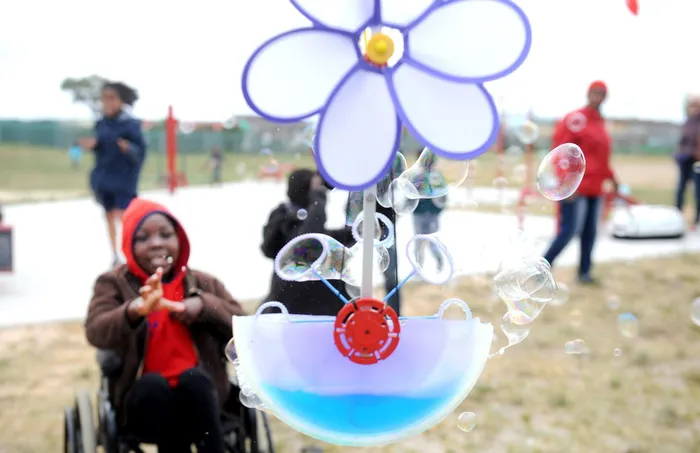
Mental health is a big issue in South Africa today. Picture by Ayanda Ndamane Mental health is a big issue in South Africa today. Picture by Ayanda Ndamane
MENTAL health is one of the most neglected forms of illness despite it accounting for most suicides among young people.
According to the South African Depression and Anxiety Group (Sadag), 9% of all teen deaths here are due to suicide and the figure is going up.
In the 15 to 24 age group, suicide is the second and “fastest growing” cause of death.
“Children as young as seven have committed suicide in South Africa. Every day 22 people take their lives,” Sadag says.
According to the World Health Organisation, 800000 young people commit suicide worldwide each year. These statistics are backed by the high admission rates of young people to mental institutions. The statistics show that young people are most vulnerable and have to deal with many issues.
The recent deaths of students at universities throughout the country have prompted the South African Union of Students (Saus) and Grades and Levels SA to join hands to tackle the scourge. They recently launched a student mental health care 24-hour call centre. Saus president Misheck Mugabe said the move came in the midst of realisation of the many challenges experienced by students on a daily basis.
“Students in our universities are subjected to a number of challenges such as financial exclusion, academic exclusion, victimisation, killings and abuse which affects their mental health severely on a daily basis. Understanding these unfortunate realities, Saus has joined hands with Grades and Levels SA to ensure the successful rolling out of a student mental health and wellness initiative that offers free 24-hour medical support to students,” he said.
Mugabe added that the initiative comes after many incidents across universities have been reported and the poor implementation of psychological interventions to address and remedy some of the challenges students faced.
“There has been an increase in the number of student deaths across campuses caused by the rising rate of student suicide, students being murdered on and off-campus and often in front of their peers, leading to trauma with no psychological intervention or post-trauma counselling,” he said.
Clinical Psychologist Mthetho Tshemese, who will be heading the project, said urgent intervention was needed to address the problems associated with mental illness.
He said mental health is often seen when things don’t go right and only then are intervention measures put in place.
“In terms of health globally, mental health is really a neglected sibling within health. We have never had a situation where we integrate mental health as an integral part of health in general. Often we think of mental health in relation to mental illnesses. We don’t think of what it means to have mental health, we think of it as though the person is crazy. It is accompanied by stigma.”
Tshemese said one thing that appealed to him in joining the project was the need to have students being an integral part of it.
When students applied at universities, they did not have much of a say in terms of the student support services offered or not offered.
“Another thing that fascinated me was that come matric results, learners are going to have so much pressure to perform and then go to varsity. The bulk of tertiary students are recipients of NSFAS. By definition, it means you come from a challenged background.
“What we don’t talk about is that if you come from a socially challenged background you are predisposed to a number of challenges from your family and expectations. What is supposed to be an exciting period for you as a student actually comes with a lot of pressure.”
Tshemese gave an example of the struggle of having to adjust to tertiary life from a socially challenged background. He had a friend who did not know what cornflakes were, he got exposed to them only when he went to university.
“He thought they were chips. We would go to the dining hall and he would eat his cornflakes as though they were chips and wash them down with orange juice. I’m just talking about diet as an adjustment because you come from home and eat whatever food you eat and then you are at this institution and have to adjust to the cooking. Often we just assume students should know how to manage these.”
Tshemese said it was alarming to see cases of students killing themselves or others.
“We have also seen how women have been vulnerable in institutions of higher learning where there have been rape cases, people who are marginalised because of their sexual orientation and how that makes them feel.
“Being a student is an exciting thing. However, these institutions of learning are also spaces where there is violence. There is a student who was killed in KZN by her boyfriend. All these things speak to the need to say whatever challenges they have must be addressed.”
The project will be rolled out countrywide. More than 800 people will man the telephone lines and work closely with psychologists.